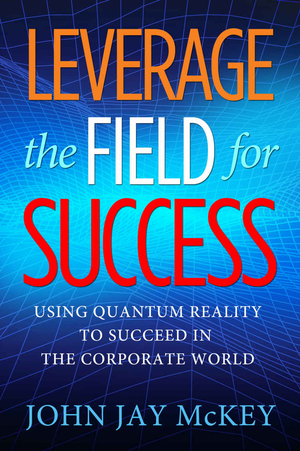Nature Knows and Psionic Success
God provides
Best Supplements for Gaming

Here is a bit more intensive review of the Supplements used in gaming or made for gaming. It’s time to dispel some myths. Supplements are no longer just for guys who spend all their time in the gym, or the highest of high-fliers on Wall Street. Supplements have gone mainstream, and if you’ve not woken up to their benefits yet then chances are you are missing out. This article is going to look at some supplements that are of particular interest to gamers . The word ‘supplements’ has come to mean a lot more than just protein powders and pep pills. Instead, think of modern supplements as a highly condensed form of advanced nutrition that provides benefits far beyond larger muscles or sharper focus for a short time. These modern supplements are becoming more and more popular with everyone, according to data from the Council for Responsible Nutrition [i] . The data suggests that 76% of all Americans use at least one supplement and that 33% of males take supplements for increased energy alongside other health goals. Gamers should not feel guilty for considering taking supplements to help maximize their performance. After all, you could spend hundreds of dollars on a professional mouse and keyboard to improve your performance. Alternatively, you may choose to pay via microtransactions for upgraded weapons or equipment in order to get the edge on other players. The two things follow the same principle as using supplements – all you are doing is getting some external assistance to help you perform in-game. In this article we are going to look at a range of natural supplements called Performance Lab from manufacturer Opti-Nutra. This company is known for using high-quality ingredients to produce very high-quality products and they offer one of the most complete ranges of […]
Why CBD is a Natural Alternative to Adderall
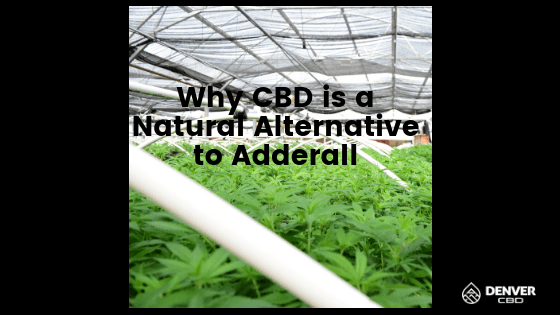
Originally posted on https://denvercbdco.com/why-cbd-is-a-natural-alternative-to-adderall/ Although CBD is still fairly new to the market, it is getting a lot of attention in the media. Many people with conditions ranging from depression to fibromyalgia find CBD to be an effective natural treatment option. And, CBD has even shown anti-tumor properties , with evidence to support the way it inhibits the progression of certain cancers. CBD is also one of the leading natural alternatives to Adderall, a prescription medication used to treat attention deficit hyperactivity disorder (ADHD). Around 16 million prescriptions for Adderall are written for adults each year in the US alone. But, Adderall also has a range of troubling side effects, and is widely abused, especially by millennials. As such, the potential CBD shows as the most effective natural alternative to Adderall is very significant. Read on to learn more about why CBD is the best alternative to Adderall. What is Adderall? Adderall is a combination of amphetamine and dextroamphetamine. It is most often prescribed to treat the symptoms of ADHD. But, Adderall is also used off-label to help patients with severe depression and sleep disorders such as narcolepsy. Adderall is classified as a central nervous system (CNS) stimulant. It works by heightening CNS connections to control hyperactivity and impulses. This, in turn, helps improve focus and attention in those with ADHD. The overall effect is to bring the brain down from a state of over-stimulation to a normal, baseline stimulation level. Why Search for an Alternative to Adderall? While many people rely on Adderall for medical reasons, it can cause psychological or physical dependence. It also has a high potential for abuse and misuse. In fact, 30-40 percent of people with a prescription for Adderall have misused it at some time. Even when taken as prescribed, Adderall has a […]
Chemotherapy and the brain: How this “healing” treatment actually damages cognition

( Natural News ) Chemotherapy is the hallmark of conventional cancer treatment. In spite of the bevy of unpleasant side effects, chemo remains the go-to for treating many different cancers and is even used in palliative care. While chemo drugs are considered “healing” medicines, the truth is that these drugs are capable of causing long-term damage to the body and the brain. As a side effect, cognitive deficits related to chemo are estimated to effect some 75 percent of patients with cancers effecting areas of the body outside the central nervous system. A growing number of experts are now speaking out about the deleterious effects chemotherapy has on cognition — and there is no shortage of research to support what they’re saying. Multiple chemo drugs have been implicated in the instance of “chemo brain,” and it turns out these drugs are capable of damaging essential structures within the brain. Studies show that while the industry claims chemo brain is only temporary, the effects chemo has on cognition can be long-term. Estimates suggest chemo brain may last anywhere from a few months to an entire decade. Chemo on the brain As Psychology Today reports , a number of chemo drugs have been identified in the onset of chemo brain. These include carmustine, cisplatin and cytarabine, along with many others. Past research has shown that these drugs had negative effects on oligodendrocytes, a type of brain cell. Specifically, these chemo drugs increased oligodendrocyte death within the dentate gyrus and hippocampus — regions of the brain dedicated to learning and memory. Research has shown that other cancer drugs are also capable of harming oligodendrocytes. The power of the elements : Discover Colloidal Silver Mouthwash with quality, natural ingredients like Sangre de Drago sap, black walnut hulls, menthol crystals and more. Zero artificial […]
The Negatives Of Nootropics: Risks You Should Consider
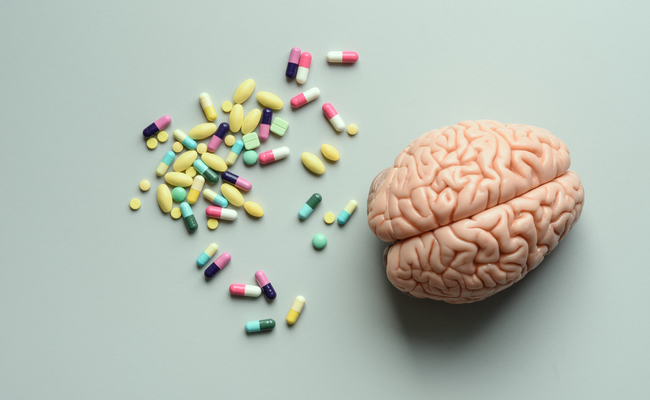
Nootropics are often touted as wonder drugs that can help to improve socialization, reduce anxiety and tension, and help us to perform at our very best no matter the situation. In many areas, they are also easily accessible, and this can help to normalize their use and make many users feel they are safe. Many expect they are regulated in a similar way to drugs such as alcohol or caffeine. While there are undoubtedly benefits to nootropic use, there are also risks you should consider and research—we are here to help with that. Before you start searching for the best store to buy phenibut make sure you are fully aware of potential risks and dangers. Issues With Sleep Nootropics can seriously mess with your sleep pattern and quality during the time you are taking them, and this issue could continue even after you stop. When used long term, certain nootropics are thought to deplete slow brain waves during the sleep process. They force your nervous system to remain alert and active, disrupting your entire circadian rhythm, and this can result in a tired, groggy feeling upon awakening. Changing The Brain Brain scans and research have shown that nootropics can physically alter how the brain works, and may even expand or shrink certain areas of the brain. Functions can be inhibited, and this can be dangerous on a short and long-term basis. Cognitive Defects Long term use of nootropics can result in cognitive defects in a way similar to nicotine. In the short term, nicotine can be used to boost and aid cognition. Over time, however, the brain becomes tolerant to the drug, and more substantial amounts are required to achieve the same effect. Research suggests that the same is true of nootropics, and could result in the drug being […]
Best Nootropic supplements 2019 – Your ultimate guide
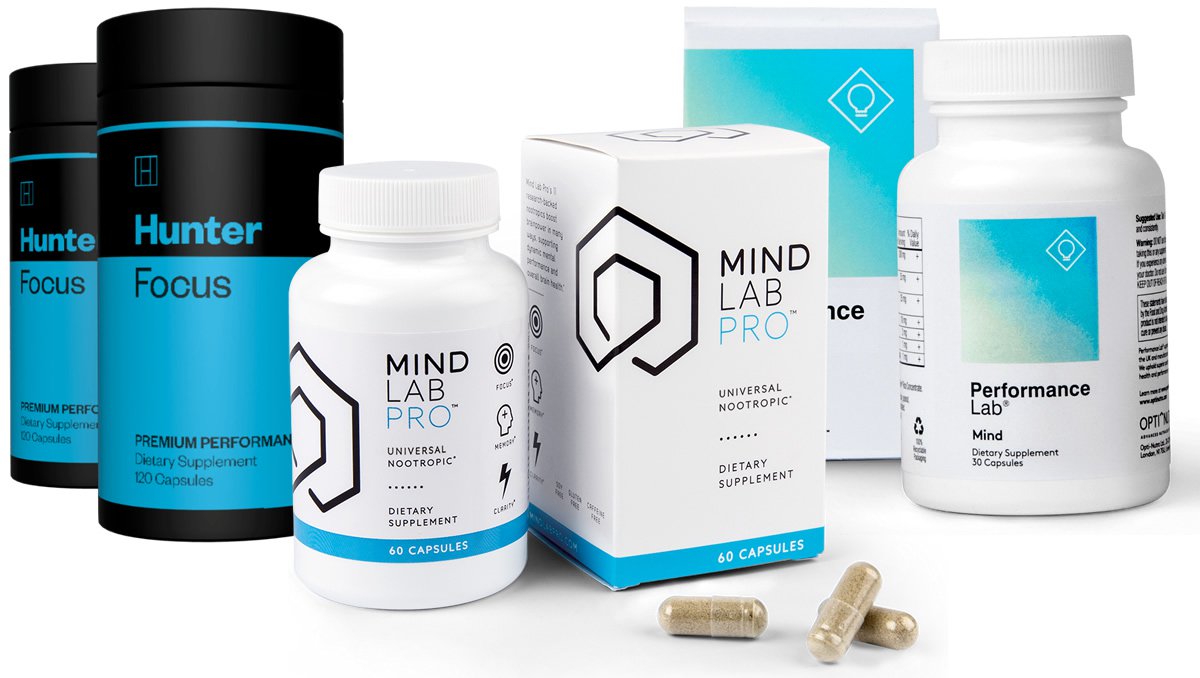
Our pick of three leading Nootropic supplements (Photo: Various) The pace of modern life is often frantic. The faster our technology becomes, the harder we need to run to keep up with it. Or so it seems. Until we’re practically running full-pelt through life, trying to fit in work or school, family, health and fitness, friends, romance, leisure, and more. If we feel a bit drained, we might look to a multivitamin for our body, but what about a supplement for our mind? Can ‘nootropics’ really help? Before we discuss nootropics in detail, let us first stress that there’s no alternative to a balanced and varied diet, consistent exercise routine and healthy lifestyle choices. If you follow all three, you’re going to get pretty much all the nutrients that your body – and mind – needs to thrive. That should be your first step. If you haven’t already added these factors to your everyday life, you’d be well advised to do so before even looking at supplements. If your daily life is as healthy as you can make it, however, a good supplement could potentially help to support you on your health and fitness journey. Current Top Rated Nootropic Supplements What are Nootropics? ‘Nootropic’ is a blanket name given to a group of substances claimed to have some potential to boost the brain’s natural abilities. By this, it is meant they may be able to do things such as enhance focus and strengthen some other aspects of cognition. Substances referred to as nootropics can be naturally-occurring, such as herbs, vitamins, minerals and amino acids. They can also be prescription or non-prescription drugs, synthetics, nutraceuticals and supplements. Basically, the link between them all is that they supposedly help support brain function. They are intended to be used by cognitively healthy […]
Many are calling for the media to be held legally accountable for relentlessly lying to the American people about Russian Collusion

( Natural News ) Now that the Mueller investigation is over and his report has shown that there was absolutely no collusion between the Trump campaign and the Russian government, the focus is rapidly turning to those that endlessly propagated extremely damaging conspiracy theories about the president of the United States. For 675 days, CNN, MSNBC, ABC, CBS and NBC engaged in a fake news binge unlike anything that we have ever seen before in all of U.S. history. They relentlessly pushed out news story after news story touting that we would soon have “evidence” that Trump had colluded with the Russians when there was no evidence at all. They kept telling us that “indictments are coming”, that “the noose is tightening” and that “the walls are closing in on this administration” when none of that was ever true. The entire Russian collusion narrative was a piece of fiction created by Hillary Clinton’s campaign team to explain her shocking election loss, but once it was embraced by the mainstream media and pro-Clinton members of federal law enforcement agencies it quickly snowballed out of control. Now the time has come for the mainstream media to be held accountable for lying to the American people on a massive scale, and later in this article I will explain how this can be done. (Article by Michael Snyder republished from EndOfTheAmericanDream.com ) And I am certainly not the only one calling for the mainstream media to be held accountable. Other prominent conservative voices are also calling for accountability … Donald Trump Jr lamented “more than two years of non-stop conspiracy theories from CNN, MSNBC, BuzzFeed and the rest of the mainstream media” and added: “It’s my hope that honest journalists within the media have the courage to hold these now fully debunked truthers […]
Eight ways to sharpen your mind and tune up your brain

The verdict on games, crosswords and other ‘brain-boosting’ exercises. The brain is like a dense conglomerate of muscles, each one dedicated to a particular task. Exercise any one of them and it will get stronger, but you need to exercise them all to improve your general cognitive ability. If you practise adding up figures all day, for instance, you will get very good at adding up figures, but if you never resort to estimation – a skill performed by an entirely different brain ‘muscle’ from arithmetic – you will be no better than anyone else at judging, say, the size of a crowd. Brain-training has been dogged by the difficulty of developing exercises that improve functioning across the brain rather than in one small part. It’s now recognised that suites of exercises – those that package together visual search exercises with motor coordination challenges and word-retrieval games, for instance – can have broad benefits. However, if you have a healthy brain capable of a normal range of skills, the best exercise you can get is real life. Taking an active part in the community, enjoying art, listening to music, engaging politically and enjoying a rich social life – these are the best training of all. © Scott Balmer Not all of us, however, have optimally healthy brains. Nor is it always possible to develop or practise the full range of cognitive skills. Brains degenerate physically with age, just like every other part of the body, and many people can’t live life to the full because they’re locked into repetitive work or cut off for some reason from intellectual stimulation. When people get older, their neurons tend to be less excited by environmental stimuli. This is partly due to reduced hormones and neurotransmitters, but partly because fewer events are novel […]
Another reason to exercise? Brain benefits
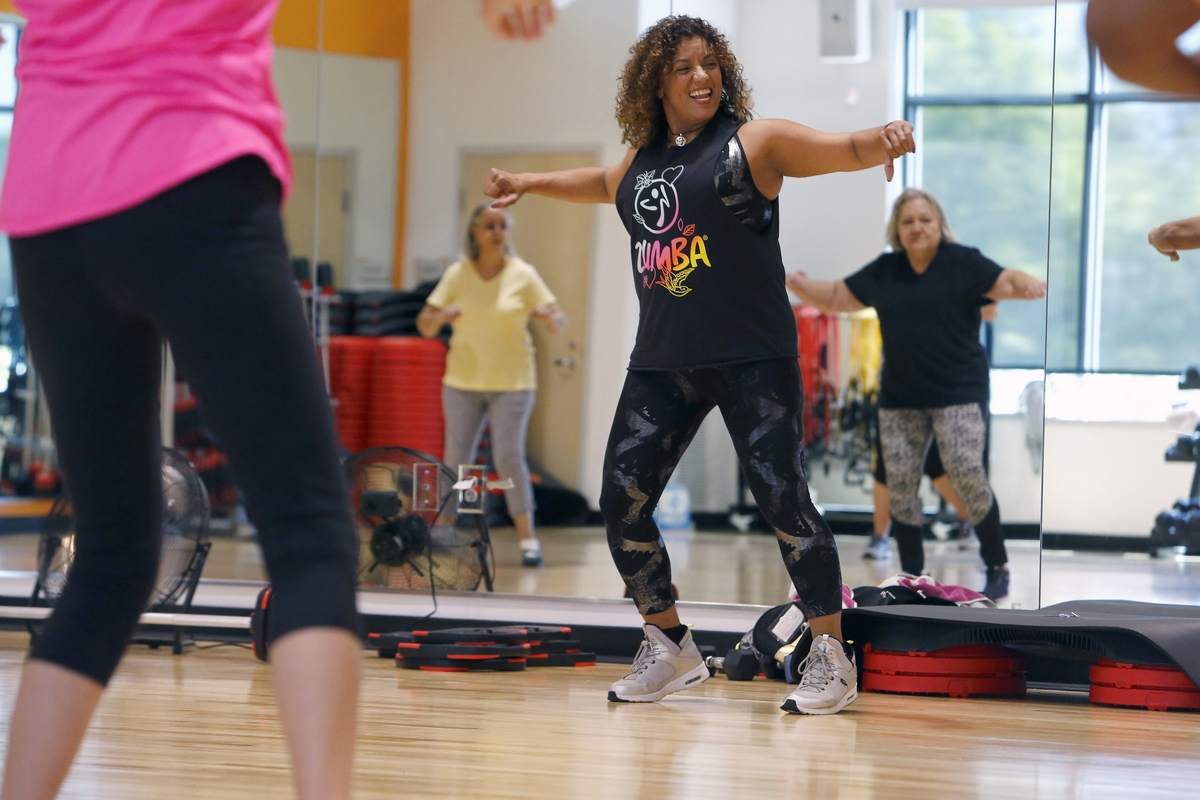
There is growing evidence that regular aerobic exercise can help improve cognitive function, things like thinking, problem solving and reasoning. Zumba instructor Damaris DeJesus leads the Zumba Gold class at the Spurlino YMCA in Gibsonton. [LUIS SANTANA | Times] If the promise of losing weight hasn’t propelled you off the couch and into the gym, maybe this will. There’s a bounty of research that says exercise benefits the brain in ways that may delay or prevent dementia, Alzheimer’s disease and the inevitable mind-muddling effects of aging on the brain. The human brain reaches its functioning pinnacle sometime in our 20s. After that, thinking and processing skills slowly begin to decline. The older we get, the more we notice little slips, like walking into a room and forgetting why you’re there, not being able to recall the three things on your grocery list or, even worse, oops — forgetting to pick up the kids. We’ve all had those moments. It’s a natural part of aging. By the time you reach your 40s you can’t help but notice you have to work a little harder to retain and recall new information. In your 50s and beyond it takes longer to learn new, seemingly simple tasks and to organize projects. Even concentrating on conversations and in meetings becomes challenging. But what if you could do something that might delay mental decline or improve your current thinking skills? The answer may be as simple as adopting a more active lifestyle. Experts are still studying why exercise improves thinking and cognitive function, but it probably has to do with increasing blood flow to the brain and generally reducing chronic inflammation in the body. Some studies have shown that it also increases the size of the hippocampus, the part of the brain that’s involved with […]
Neurogenesis: Why You Should Exercise Before (Not After) You Learn
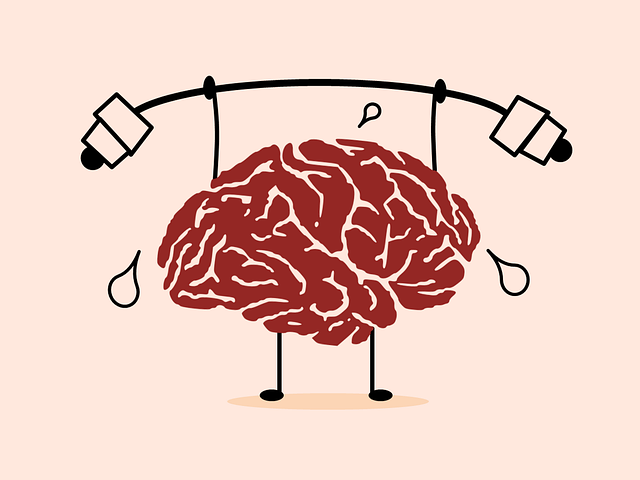
Various activities spur neurogenesis, or the creation of new brain cells, from aerobic exercise to nootropics to silence . In turn, neurogenesis can lead to memory enhancement or memory loss, depending on when it occurs. Researchers have found that they can control whether rats remember or forget new information by spurring neurogenesis at different times. If neurogenesis occurs before learning, the rats retain the new information . If neurogenesis occurs after learning, it can cause the rats to forget that information. These findings could have practical implications for everyday, brain-boosting activities like exercise and deciding when to take cognition-enhancing supplements. Although there’s been a debate over the past year over whether or not adult brains form new neurons , the most recent research confirms that we do grow new brain cells throughout our lives—especially in the hippocampus, the part of the brain responsible for memory. However, neurogenesis should not be conflated with memory formation. In fact, neurogenesis can cause us to forget just as often as it can lead us to remember. In a study published in Science , a research team from Toronto reported that newly formed cells in the hippocampus could “dislodge previously learned information.” This could help explain “infantile amnesia,” or why it’s so hard to recall memories from childhood. “Most people think new neurons mean better memory,” Sheena Josselyn, a neuroscientist who led the study, told Scientific American . “More neurons increase the capacity to learn new memories in the future. But memory is based on a circuit, so if you add to this circuit, it makes sense that it would disrupt it.” When we’re young, our brains are generating new neurons all the time. When we’re older, neurogenesis slows down. This is why the researchers chose to test young rats and old rats in […]
Best Nootropics for Athletic Performance
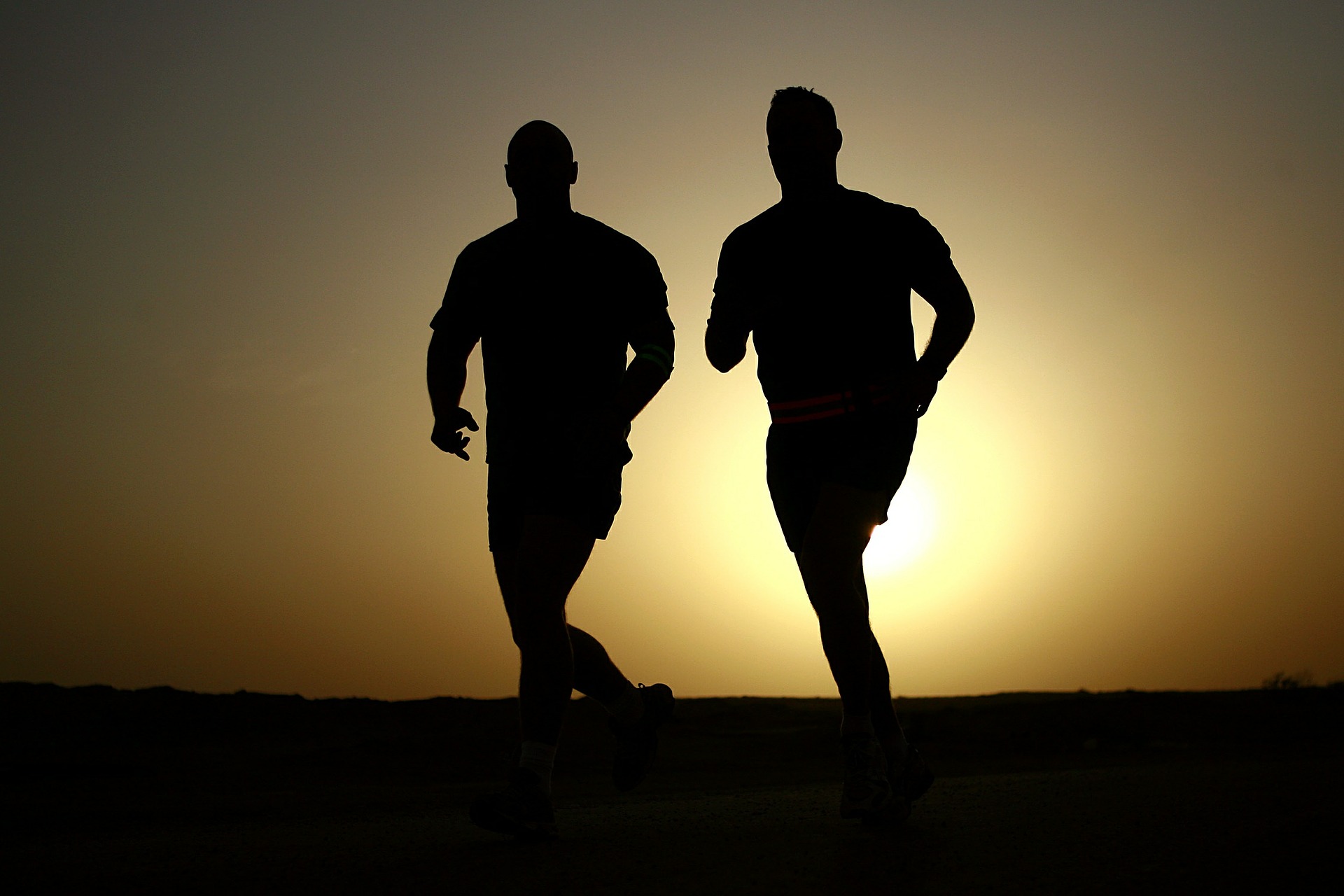
Biohacking nerds and tech junkies love nootropic supplements for their significant boosts on mental performance. However, not enough attention has been paid to how nootropics may benefit athletic performance. Because pre-workout supplements often come laden with sugary additives and caffeine and other heart-racing stimulants, true health conscious athletes tend to avoid popular pre-workout stacks for healthier alternatives. But sheer stimulation isn’t the name of the game that you want to play here. Natural, healthy, nootropic enhancement replaces stimulation with genuine brain boosting cognitive effects. And for the competitive athlete, a sharpened mind could be the difference between a win or a loss, the champion belt or a face-on-the-floor K.O. Here, I’ll guide you through the best nootropics for athletic performance, as well as one of the best nootropic supplement lines fit for nerds and athletes alike: the premium, multi-stacked Performance Lab by Opti-Nutra. Do Athletes Need Nootropics? First, let’s ask ourselves: can nootropics improve athletic performance? The answer there is: yes. And so now we may ask: do athletes need nootropics? The answer there depends on what type of athlete you are; although, I imagine all the serious, competitive athletes will tell you: yes, you need nutrition and supplements to boost your athletic performance, even your cognitive athletic performance. Don’t get it twisted: even the more bone-headed, caveman-like athletes who can barely string together a sentence during their post-game interviews function on an elevated cognitive capacity. While we tend to associate cognitive performance with nerdy pursuits, such as chess and academic exams and ( ugh ) reading books, athletic performance also has a key cerebral component that distinguishes top-tier athletes from the stragglers. Nootropics may boost the cognitive aspects of athleticism in a way that’s not only enhances athletic performance but sustains those cognitive benefits for off-the-field activities as […]
Study Finds Nuts To Be Key in Improving Brain Health

Our brain is arguably the most important organ, as it not only controls and coordinates actions and reactions, it also allows us to think, feel, have memories and emotions, and do a lot more. Therefore, keeping your brain healthy is as important as maintaining a healthy and fit body. According to new research, a healthy habit of eating nuts could be the key to better cognitive health as we grow older. In a study conducted by the University of South Australia, researchers found that consuming more than 10gm (grams) of nuts a day is positively associated with better mental functioning, including improved thinking, reasoning and memory. Dr Ming Li led this new study which is the first to report an association between cognition and nut intake in older adults. This new research has provided important insights into increasing mental health issues (including dementia) faced by an ageing population. “Population ageing is one of the most substantial challenges of the twenty-first century. Not only are people living longer, but as they age, they require additional health support which is placing unprecedented pressure on aged-care and health services,” Dr Li said. “Improved and preventative health care, including dietary modifications, can help address the challenges that an aging population presents.” Researchers gathered data from 4,822 Chinese adult participants aged 55+and found that eating more than 10gm (or two teaspoons) of nuts per day improved their cognitive function by up to 60%, compared to those not eating nuts. The research team suggested that such an eating habit could effectively ward off what would normally be experienced as a natural two-year cognition decline. For the study, researchers analysed nine waves of China Health Nutrition Survey data collected over 22 years, finding that 17% of participants were regular consumers of nuts (mostly peanuts). Peanuts are […]
Speech therapists work with a wide variety of disorders

BULLHEAD CITY — It’s something that doesn’t always seem apparent, but speech pathologists have helped many people and will continue to help even more. “In speech pathology, we can diagnose communication, speech, language and swallowing disorders,” said Hannah Abbott, a speech pathologist at The Legacy Rehab and Care Center. “From birth to the end stages of life, it’s helping of all ages learn how to improve their speech, language, communication and swallowing skills.” “Speech pathologist works with a variety of disorders and populations depending on what route they go,” said Abbott. “For example, they can go through pediatrics and work with schools or go through the medical field. They can also work with mothers who have newborns and teach their families the baby’s communication signals.” Abbott herself had to see a speech pathologist after sustaining a mild traumatic brain injury, which is one reason she chose her career path. “I went into therapy to help with time management skills and executive functions,” said Abbott. “My speech therapist’s compassion for me, and how she helped me meet my goals to get back into school full time, inspired me to do the same thing for other people.” According to the National Institute on Deafness and other Communication Disorders (NIDCD) in 2016, about one in 12 (7.7 percent) children ages 3-17 years old in the United States had a disorder related to voice, speech, language or swallowing. “In the Colorado River Union High School District, 59 out of the 220 special needs students are in speech therapy,” said Geoff Tubbs, director of special services for CRUSHD. “In the elementary district we have 232 students that require speech therapy and that includes pre-school students.” According to the American Speech-Language-Hearing Association (ASHA), about 40 million Americans have a communication disorder. Abbott said that her […]
Easy And Healthy Raw Food Ideas For Breakfast
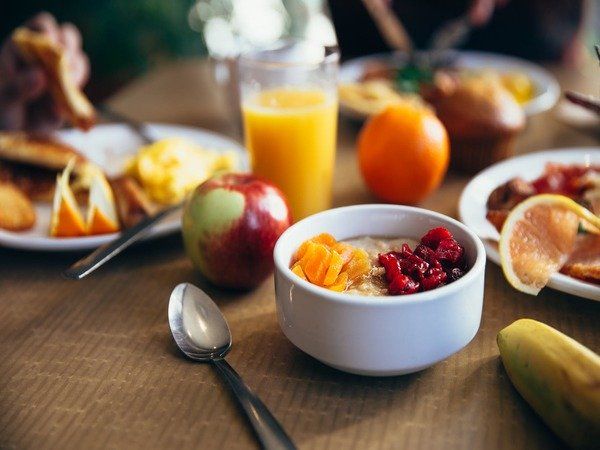
Breakfast is the most crucial meal of the day. It kick-starts your metabolism and helps you burn calories throughout the day. Basically, you run your day on your breakfast. Be it a fruit or porridge, breakfast is necessary for your health as well as your memory and concentration . An individual who does not skip out on their daily breakfast has lower levels of "bad" cholesterol (LDL) and lower chances of getting diabetes or heart diseases. It even prevents your body from gaining extra weight, as it regulates your metabolism . Skipping the first meal of your day can have huge repercussions on your body and health, as it disturbs your body’s balance of fasting and eating. When you wake up in the morning, your body will have no energy to work your brain – which is when breakfast comes in! Incorporate nuts, fruits, dairy, and some grains into your breakfast, so that your body can get the required vitamins and nutrients . Raw Foods For Breakfast – Are They Good For You? A diet that consists of raw foods involves unprocessed, whole, plant-based, and organic foods. So that is, you will be eating raw fruits, vegetables, and grains and sorts. The idea behind consuming raw foods is that, when a portion of food is heated, they tend to lose its nutrients and natural enzymes . Raw foods are asserted to help ease headaches and allergies, boost immunity and memory, and improve arthritis and diabetes. There are various raw food diets that you can adopt, with veganism being the prominent one . Eating (healthy) raw foods can improve your heart health, reduce your risk of diabetes, aid weight loss, and improve digestion. While consuming raw foods, avoid animal products and focus on fruits, vegetables, nuts and seeds. You can […]
Healthy Sex On A Regular Basis Means A Healthy Brain

Healthy sex is something we should all aspire to achieve, regularly. It might make you laugh, but, it will seriously boost your brain health. Maybe you thought that your most important sex organ was the one between your legs. Realistically speaking, it’s your brain. Think about it, your brain controls every small or big thing you do. Therefore, it’s just as crucial to your sex life as the other parts. Studies show that your brain releases chemicals, which control your libido, arousal, and sexual performance. And ultimately, it controls your body’s movements and responses too. It doesn’t surprise me at all that a healthy brain means a happier sex life. However, most people don’t seem to value the relationship between sex and the brain. There is a very strong reciprocal process between the two. And having sex often helps keep your brain young, sharp, and happy. Healthy Sex For Your Brain I mean it’s a win-win. It is not like sex is a mission for you to do. Healthy sex is something that everybody should enjoy on a regular basis. Add not just because it’s fun, but because it’s really beneficial to your overall health too. Build A Stronger Brain There’s research that says regular sexual activity increases neurogenesis. This is the growth of new neurons in the brain which improves cognitive function in multiple areas. In addition, experts have found that sexual experience also promotes cell growth in the brain’s hippocampus, which is essential to memory. Instant High There is a great amount of pleasure that you experience when having sex. This is largely due to dopamine, which is a chemical messenger in the brain and is in charge of many functions. The hormone is involved in reward, motivation, memory, attention, and regulating body movements. Therefore, when dopamine […]
4 Benefits of eating natural peanut butter before bed time
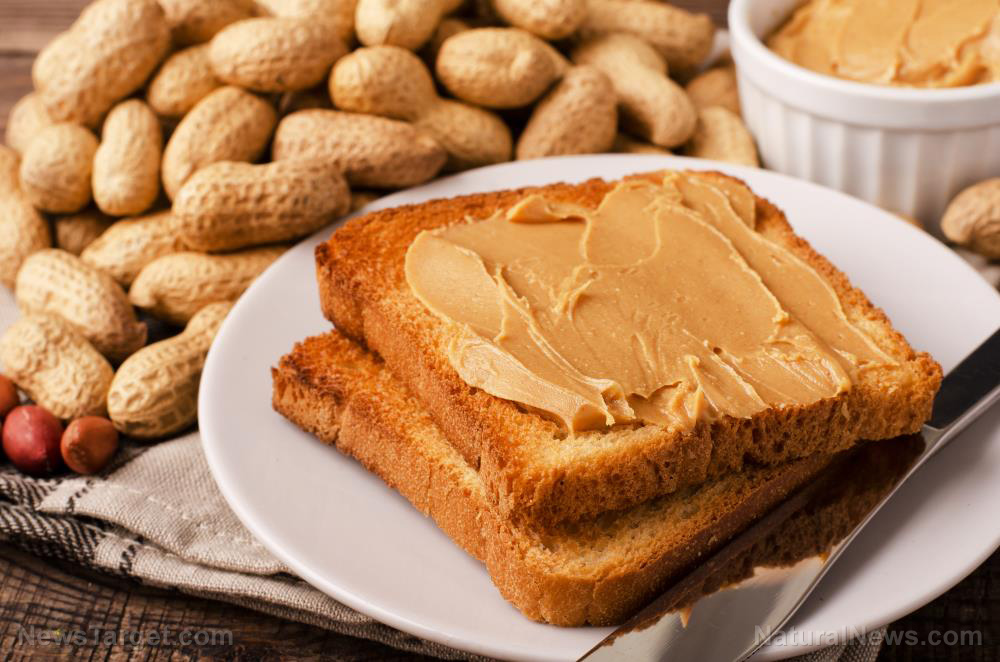
( Natural News ) Made from ground, dry roasted peanuts, peanut butter is one of the most popular spreads around the world. It can be consumed at any time of the day, but consuming it at night before bed in moderation can give you the following benefits. Peanut butter aids in weight management Although peanut butter is high in fat – containing nearly 100 calories in every tablespoon – it can still help you lose weight by controlling your appetite. Research shows that eating tree nuts or peanuts before a meal or as a snack can help you feel fuller for longer periods. This results in eating less, which can also help you lose weight overall. Peanut butter can also help with weight loss by managing your blood sugar levels. Eating processed and starchy foods can cause unstable blood sugar levels, which has been associated with obesity and diabetes. Peanut butter, although naturally sweet, has a low glycemic index. Eating peanut butter allows you to consume healthy fats, protein, and fiber without causing blood sugar spikes. Peanut butter helps you sleep better One of the best desserts to eat after dinner is peanut butter because it can help you sleep better. It is loaded with an amino acid known as tryptophan, which helps release serotonin that has a calming effect on the brain. Carbohydrates make tryptophan more available to the brain as they promote the release of insulin, which indirectly helps send this amino acid across the blood-brain barrier. Therefore, carbohydrate-rich meals induce sleep. Try spreading peanut butter on half of a whole wheat bagel to get those sleep-inducing carbs . The power of the elements : Discover Colloidal Silver Mouthwash with quality, natural ingredients like Sangre de Drago sap, black walnut hulls, menthol crystals and more. Zero artificial […]
Say no to acrylamide: The 4 health risks associated with french fries
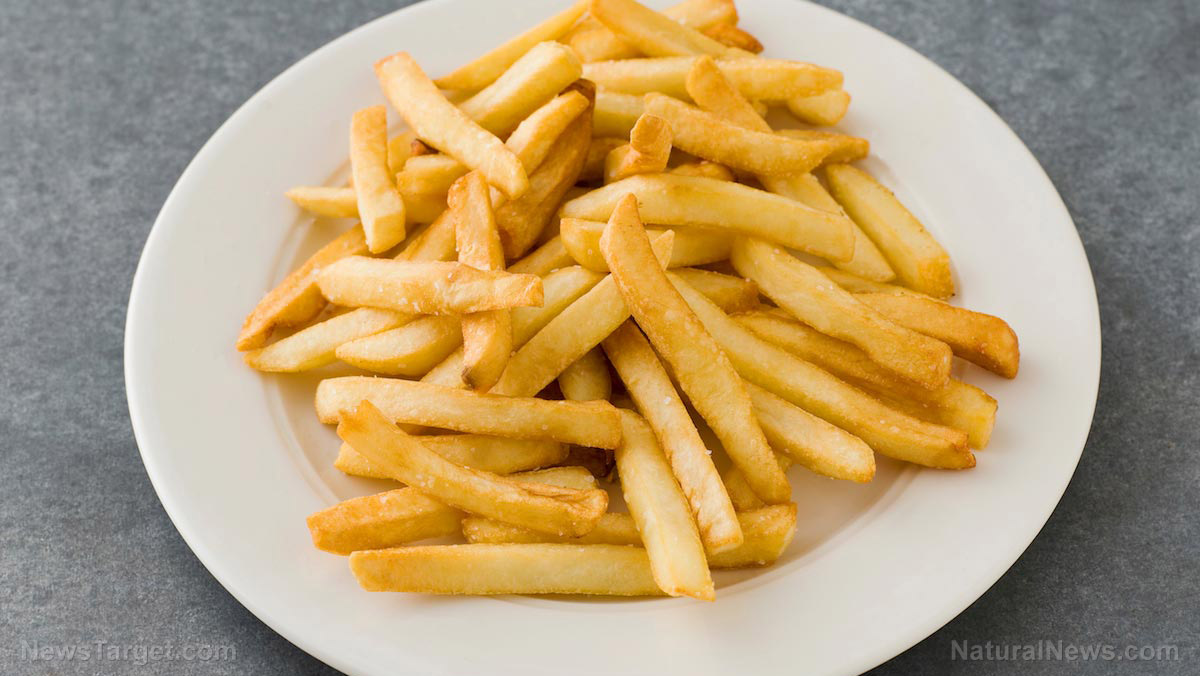
( Natural News ) A burger isn’t complete without a plate of salty, greasy French fries. But did you know that fries contain a carcinogen called acrylamide ? If you just can’t get enough of French fries, it’s time to read up on the four health risks of eating this popular fast food. Fries can cause weight gain French fries are full of fats that can make you gain unwanted weight. A single serving of French fries has 24 g of fat, but your daily diet shouldn’t include more than 65 g. According to a study conducted by the Diabetes and Obesity Center of Excellence at the University of Washington , a diet high in fats can damage the brain’s nerve cells that control body weight. French fries also contain high amounts of saturated and trans fats. The American Heart Association warns that these kinds of fat can increase blood cholesterol, which can then increase your risk of heart disease, stroke, and Type 2 diabetes . The excess salt (sodium chloride) in fries can also cause water retention in your body, which results in weight gain. Fries can raise your blood pressure French fries are seasoned with a lot of salt. Anything salty consumed regularly may increase your blood pressure, which can cause heart and kidney ailments and even a stroke. According to the National Academy of Medicine (NAM) , formerly called the Institute of Medicine , you should only consume 1,500 to 2,000 mg (or half a teaspoon) of salt daily. However, the average American consumes around two teaspoons of salt per day. A serving of French fries has at least one-third of the recommended daily intake (RDA) of salt or more than 600 mg. The power of the elements : Discover Colloidal Silver Mouthwash with quality, natural […]
6 Ways to Know You’re in Ketosis Without Using Ketone Strips
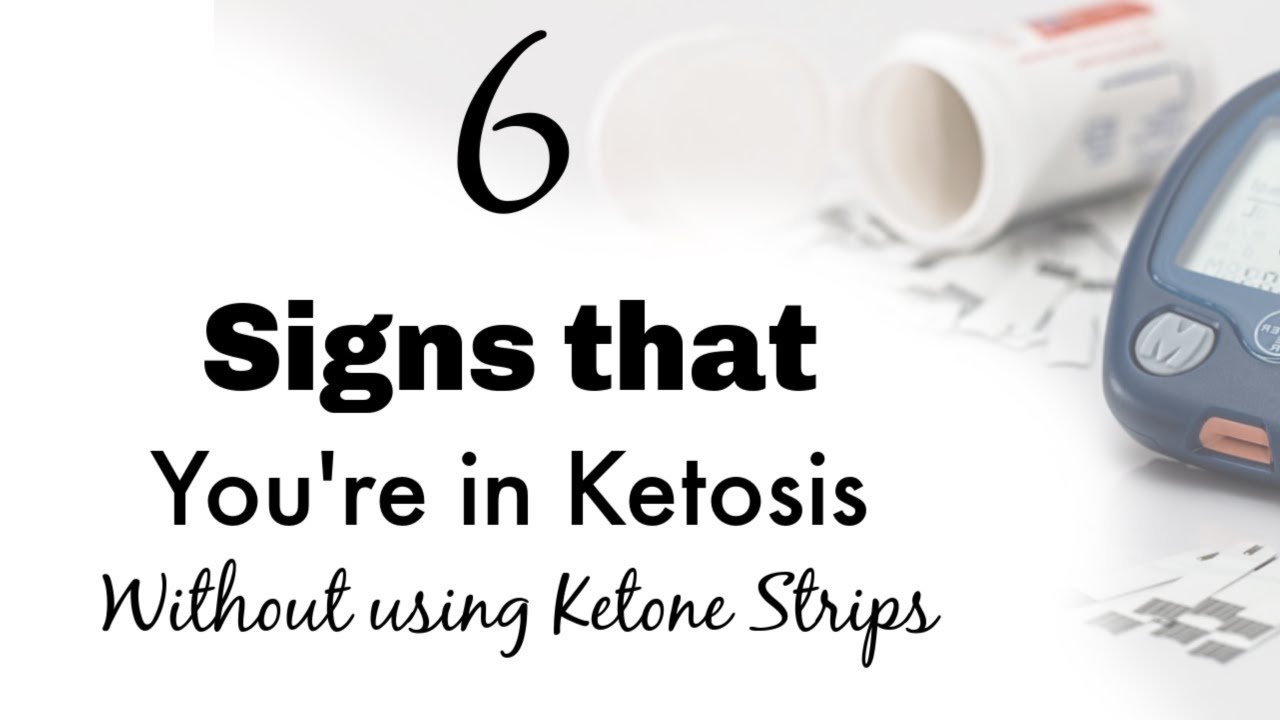
Today we’re talking about how to tell if you’re in ketosis without using ketone urine strips or blood sampling . While there is nothing wrong with testing for ketones , it is also helpful to be able to tell just by your physical symptoms whether you’re in ketosis or not. This way you don’t have to pee on sticks or buy expensive testing devices, and you learn more about your own body at the same time. If you’ve been on the keto diet for at least 3 days, you will see some, or all of these signs of being in ketosis. These signs are confirmation that you’re on the right track with your keto diet. It’s really fun to see yourself enter ketosis and be able to tick off all these (or at least most of them!) one by one! If you are planning to start the keto diet, read through these now for future reference. Watch the video, or scroll to read the 6 Ways You Can Tell You’re In Ketosis Without Ketone Test Strips 1. You’re Following a Meal Plan & Eating less than 20-30 grams of carbs/day If you’re following a meal plan designed to keep your net carbs below 20-30 g/day, cooking their recipes as described using recommended ingredients, you’re going to be in ketosis within 3 days. There isn’t wiggle room here, unless you are a very tiny inactive person, if you are limiting your carbs this much, you will be in ketosis. Here is my recommended keto meal plan . Fasting to start the keto diet There is one way to get into ketosis even faster than eating only keto friendly foods for 3 days. That is to do a fast with only water and salt/electrolytes. You can also consume black coffee, just […]
The Most Powerful Learning Tool (That Doesn’t Involve Studying)
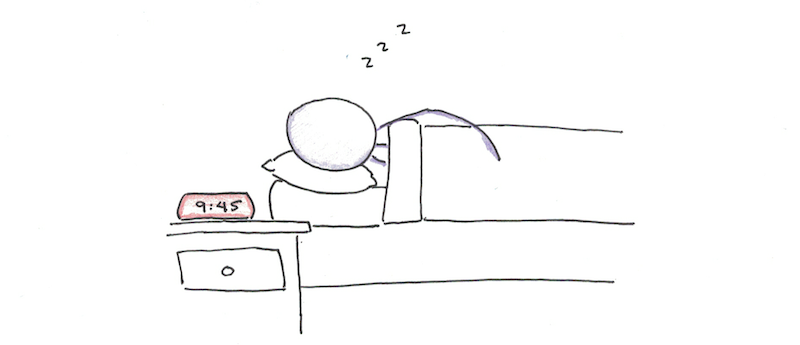
I’d like to talk about one of the most important things you can do for learning. It’s scientifically demonstrated to have a huge impact on your memory, attention and energy levels. Yet, tragically, it’s often the first thing many people jettison when they’re preparing for a big test. The Most Powerful Learning Technique The technique is sleep. Sleeping 7-8 hours per night has an enormous impact on your ability to learn. Cutting sleep, even for as little as one night, can have irreversible impacts on what you learn both before and after, in your fatigued state. Pulling all-nighters should be banned from your life as a valid tool to cram information. The costs are simply too high. Even if you’re not staying up for days on end trying to learn, few of us get the sleep we need to learn at our best. What You’re Doing When Sleeping Sleep is not a passive activity. Although it seems like you’re doing nothing but resting, the mind is highly active during your moments of slumber. Sleep is broken into different discrete phases, mostly falling into two catagories of REM (rapid eye-movement, aka dreaming) and NREM (non-REM, which includes deep sleep). While your head is on the pillow, your brain is engaging in very important work. This includes: Allowing glial cells (support cells between neurons) to shrink in size, so that chemical byproducts that result from waking activity can be flushed away with cerebrospinal fluid . Spindle events , 10-12 Hz electrical pulses, which are believed to play a role in making declarative memories permanent. Reorganization and consolidation of learned information , possibly related to improving the ability to reason abstractly and extend knowledge to new situations. [ 1 ] One of the first studies to demonstrate the importance of sleep to […]
Facts about the human brain everyone gets wrong
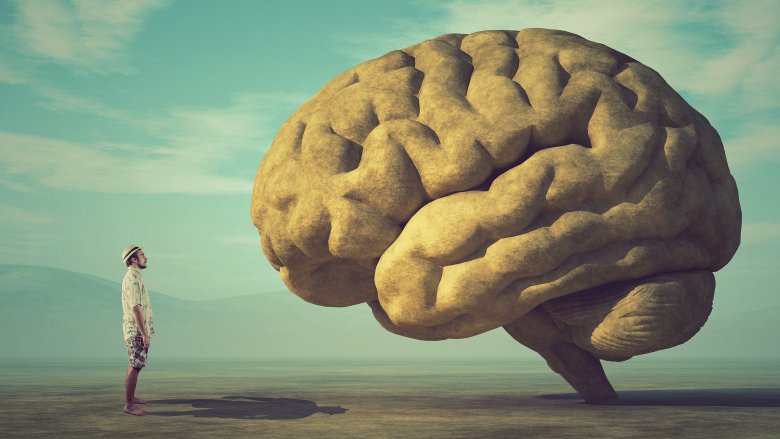
Nicholas Conley You use a lot more than 10 percent of your brain Oh, man. You’ve heard the old yarn about how humans allegedly use only 10 percent of their brainpower, right? You might’ve even repeated it a few times. Some people find it wonderful to imagine that there’s some mystical 90 percent of untapped cognitive potential that, if accessed, could allow you to think lightning fast, learn 600 new languages, gain awe-inspiring telepathic powers a la Charles Xavier, and maybe even score a B+ on your math test. These possibilities have fueled popular fiction like Lucy, Limitless , and Flight of the Navigator, and people you run into at parties might occasionally suggest that another 30 percent can be unlocked through really potent recreational drugs. Sorry, it’s a load of bunk. As Scientific American explains, humans use 100 percent of their brains, every day. The brain is complex, and there’s no space wasted, which is why brain surgery is so ridiculously complicated: Nicking the wrong cluster of neurons could impact your control of individual toes or fingers or internal organs. Even simple activities like making coffee in the morning involve intricate neural processes from disparate brain zones, like the world’s fastest WhatsApp chat. It’s hard to say where this myth got started. William James hinted at it as far back as 1907. However, PRI argues that it was popularized by Dale Carnegie’s 1936 self-help book How to Win Friends and Influence People, which contained a line about people using only 10 percent of their latent mental ability. Nothing about psionic powers, unfortunately. Brain size doesn’t matter Human beings are ludicrously smart creatures, even though watching enough dumb YouTube videos might suggest otherwise. Considering the massive craniums perched on our spindly human shoulders, it’s easy to believe that human […]
